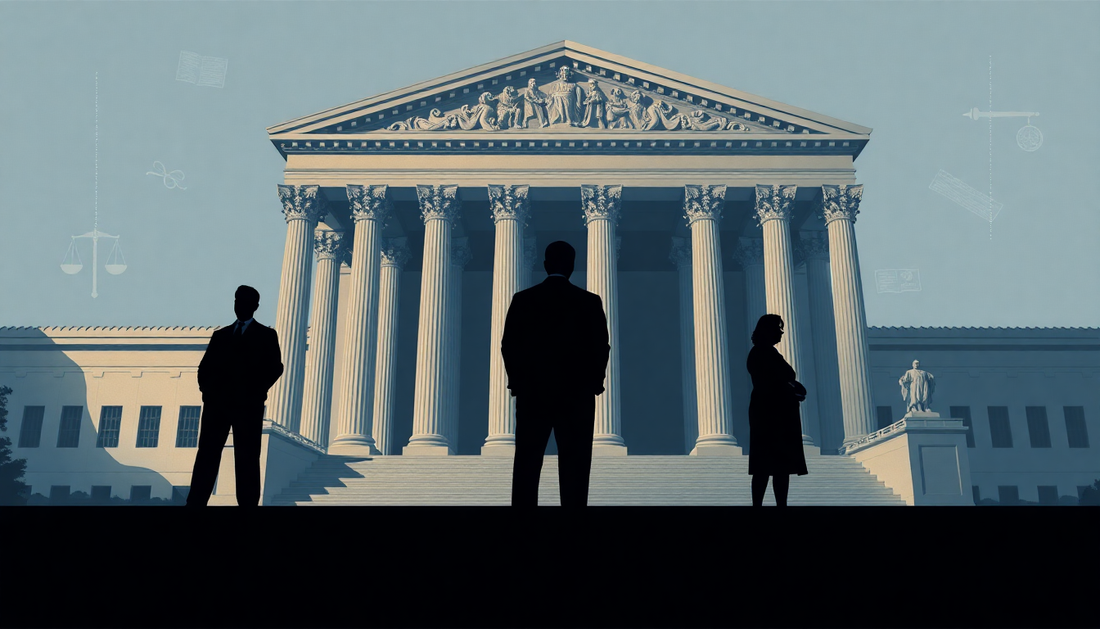
Trump's Lasting Impact on the Supreme Court
LINKShare
In the annals of American history, few presidencies have had as profound an impact on the nation's judicial landscape as that of Donald Trump. During his four-year term, the former president appointed three Supreme Court justices, cementing a conservative majority that will shape the course of the country for decades to come.
The significance of Trump's judicial appointments cannot be overstated. By the time he left office in 2021, the Supreme Court had undergone a dramatic ideological shift, with a 6-3 conservative tilt. This shift has already manifested in a series of landmark rulings that have reverberated throughout the legal and political spheres, and will continue to do so for years to come.
The Appointment of Gorsuch, Kavanaugh, and Barrett
Trump's first Supreme Court nomination came just a month after his inauguration, when he selected Neil Gorsuch to fill the vacancy left by the death of Justice Antonin Scalia. Gorsuch, a staunch originalist and textualist, was widely praised by conservatives for his commitment to interpreting the Constitution as it was originally understood.
Trump's next two appointments, Brett Kavanaugh and Amy Coney Barrett, were even more controversial. Kavanaugh's confirmation process was marred by allegations of sexual misconduct, while Barrett's nomination just weeks before the 2020 election was seen by many as a blatant attempt to solidify the court's conservative tilt before a potential change in administration.
Despite the political turmoil surrounding their nominations, both Kavanaugh and Barrett were ultimately confirmed, cementing the conservative majority on the court.
The Impact on Landmark Cases
The conservative shift on the Supreme Court has already had a significant impact on a number of landmark cases, with the potential for even more far-reaching consequences in the years to come.
One of the most notable examples is the court's 2022 decision in Dobbs v. Jackson Women's Health Organization, which overturned the landmark Roe v. Wade ruling and eliminated the federal constitutional right to abortion. This decision, which was made possible by the court's conservative majority, has sparked a firestorm of controversy and has had immediate and far-reaching implications for reproductive rights across the country.
Another high-profile case was the court's 2021 ruling in New York State Rifle & Pistol Association v. Bruen, which struck down a New York law that placed restrictions on the carrying of concealed firearms in public. This decision, which was also made possible by the court's conservative tilt, has been seen as a significant victory for gun rights advocates and a blow to efforts to enact stricter gun control measures.
The Lasting Impact on the Constitution
Beyond these specific rulings, the conservative majority on the Supreme Court is poised to have a lasting impact on the interpretation and application of the Constitution. With justices like Gorsuch, Kavanaugh, and Barrett on the bench, the court is likely to take a more originalist and textualist approach to constitutional interpretation, which could have far-reaching implications for a wide range of issues, from civil rights to economic policy.
This shift in the court's ideological makeup has already sparked concerns among progressives and civil rights advocates, who fear that the court's rulings will erode hard-won protections and roll back decades of progress. At the same time, conservatives have hailed the court's new direction as a victory for the principles of limited government and individual liberty.
Ultimately, the lasting impact of Trump's judicial appointments will depend on the specific cases that come before the court in the years to come, as well as the broader political and social currents that shape the national discourse. But one thing is clear: the conservative majority on the Supreme Court will be a defining feature of the legal and political landscape for years to come.
Conclusion
The Trump presidency's impact on the Supreme Court will be felt for generations to come. By appointing three conservative justices, the former president has fundamentally reshaped the ideological balance of the nation's highest court, with far-reaching implications for a wide range of issues.
While the full extent of this impact remains to be seen, it is clear that Trump's judicial legacy will be a central part of his presidential legacy. As the court continues to hand down rulings that reflect its new conservative tilt, the debate over the role of the judiciary in American democracy will only intensify.
Regardless of one's political leanings, the Trump-appointed justices' influence on the Supreme Court is undeniable. Their decisions will shape the legal and constitutional landscape for years to come, and will be a crucial factor in shaping the future of the United States.
